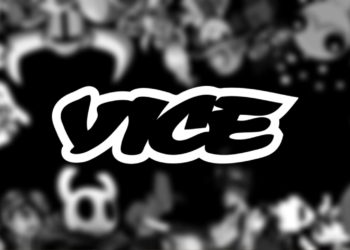President Trump spent less than 24 hours at the NATO summit this week, but he was eager to use the brief diplomatic visit to cast himself as a global peacemaker.
Before he even arrived in the Netherlands, he had negotiated a cease-fire between Israel and Iran, NATO had acquiesced to his demand to increase military spending and he and his allies had argued he should get the Nobel Peace Prize, an accolade he has been angling to win for years.
So Mr. Trump was irked when asked at his news conference on Wednesday about one of his failed foreign policy promises: Why had he not ended the war between Russia and Ukraine, which he had repeatedly promised to do within 24 hours while running for president?
Mr. Trump said the conflict was “more difficult” than anyone understood, blamed both President Vladimir V. Putin of Russia and President Volodymyr Zelensky of Ukraine and quickly moved on.
Mr. Trump’s sojourn in the Netherlands, which included a night’s stay at a royal palace, offered a glimpse into how he sees himself — and wants to be seen — on the world stage. He wants recognition for his role in ending wars, although he appeared less interested in the details of making them stick.
“I mean, look, we just ended a war in 12 days that was simmering for 30 years frankly,” he said of the conflict between Israel and Iran. He expressed total confidence that Iran had no interest in pursuing nuclear weapons again — so much so that he said he did not care about any diplomatic agreement to formalize that.
“He gets bored quickly,” said Ian Bremmer, the president of Eurasia Group, a geopolitical consulting organization. “He loses interest, and he has recency bias.”
One exception, Mr. Bremmer said, is the president’s yearslong focus on cajoling the United States’s NATO allies into playing a larger role in the alliance’s defense efforts, which Mr. Trump successfully secured this week.
“Frankly this has probably been Trump’s best week in terms of foreign policy of his second term,” Mr. Bremmer said. “I think pretty much any objective observer would say that.”
Mr. Trump would most likely agree, and he wants more public acknowledgment of that. Last week, he unleashed his frustration on that front by complaining that he believes he will never win the Nobel Peace Prize.
“No, I won’t get a Nobel Peace Prize no matter what I do, including Russia/Ukraine, and Israel/Iran, whatever those outcomes may be, but the people know, and that’s all that matters to me!” he wrote on Truth Social.
And this was before the United States dropped bombs on Iran and the negotiated a cease-fire.
In addition to his diplomatic efforts in the Middle East, Mr. Trump announced last month that the United States had helped broker peace between Rwanda and the Democratic Republic of Congo, countries with a 30-year history of conflict. Also last month, the president announced a cease-fire between India and Pakistan, two nuclear-armed powers, and he has repeatedly bragged about his efforts to attain one.
“We stopped the nuclear war,” Mr. Trump said Wednesday at the NATO summit, saying he offered to make trade deals to end the conflict. India’s foreign ministry has denied the president’s claims.
Mr. Trump also often refers to his efforts in his first term to negotiate economic normalization agreements between Serbia and Kosovo. (Mr. Trump’s son-in-law, Jared Kushner, has a deal with the Serbia’s government to build a half-billion-dollar hotel and apartment complex in the center of its capital, Belgrade. The project also involves the Trump Organization, run by the president’s sons Eric and Donald Jr.)
“With President Trump as commander in chief, the world is a much safer place,” the White House press secretary, Karoline Leavitt, said Thursday.
But for all of Mr. Trump’s efforts to take a victory lap, NATO leaders did not have much of a chance to address some of the most pressing issues facing the alliance. The summit had been shortened by Mark Rutte, NATO’s secretary general, to accommodate Mr. Trump, who has long disdained international gatherings, and the leaders largely avoided topics that might cause fractures with the American president. (Mr. Bremmer said Mr. Rutte “delegitimized” the role of NATO leader, calling his obsequiousness toward Mr. Trump “embarrassing.”)
The communiqué, which was only five paragraphs, did not address the new Russia strategy, which leaders tasked themselves with developing at last year’s summit. The document only made passing mention of Ukraine and made no reference to China.
“I think success on the defense spending pledge, but on the downside, a lot of other important issues weren’t even addressed, and I think the alliance will have to wrestle with those issues over the coming months,” said Matthew Kroenig, an expert at the Atlantic Council, a think tank.
But for Mr. Trump, those details did not seem to be top of mind. On Thursday, he reposted a nearly week-old message from Representative Claudia Tenney, a Republican from New York.
“I’ve officially nominated President Trump for the Nobel Peace Prize twice!” she wrote on X, re-sharing Mr. Trump’s Truth Social post in which he complained that he had not won the award. “He has done more for world peace than any modern leader.”
Tyler Pager is a White House correspondent for The Times, covering President Trump and his administration.
The post In NATO Visit, Trump Casts Himself as a Global Peacemaker appeared first on New York Times.




